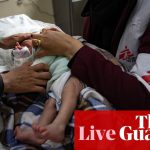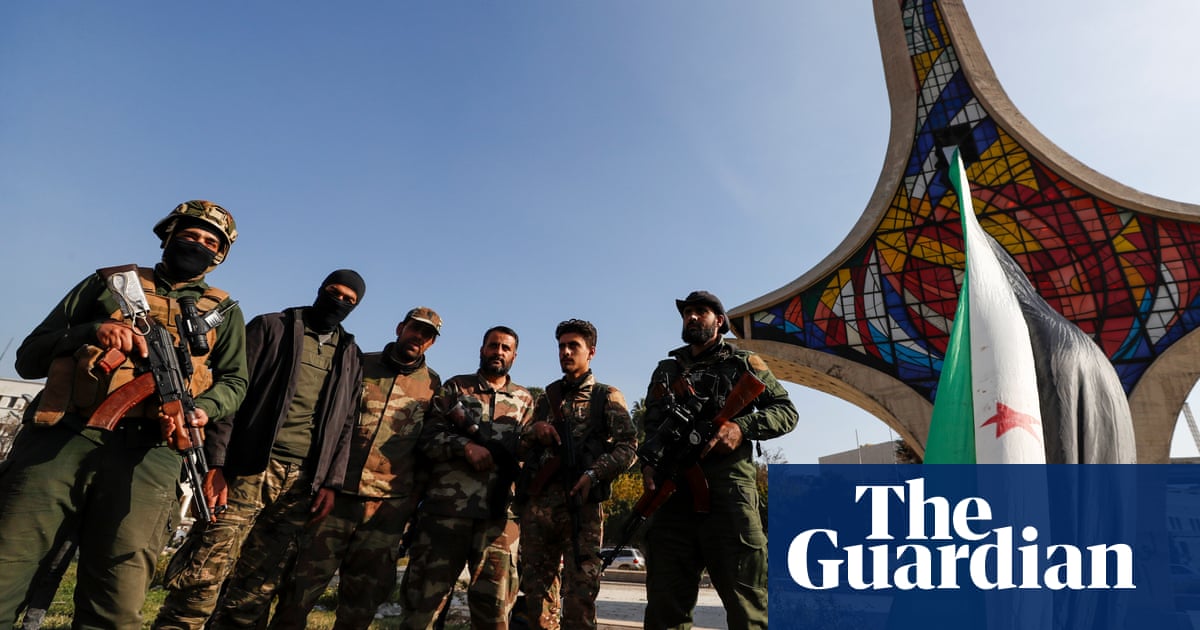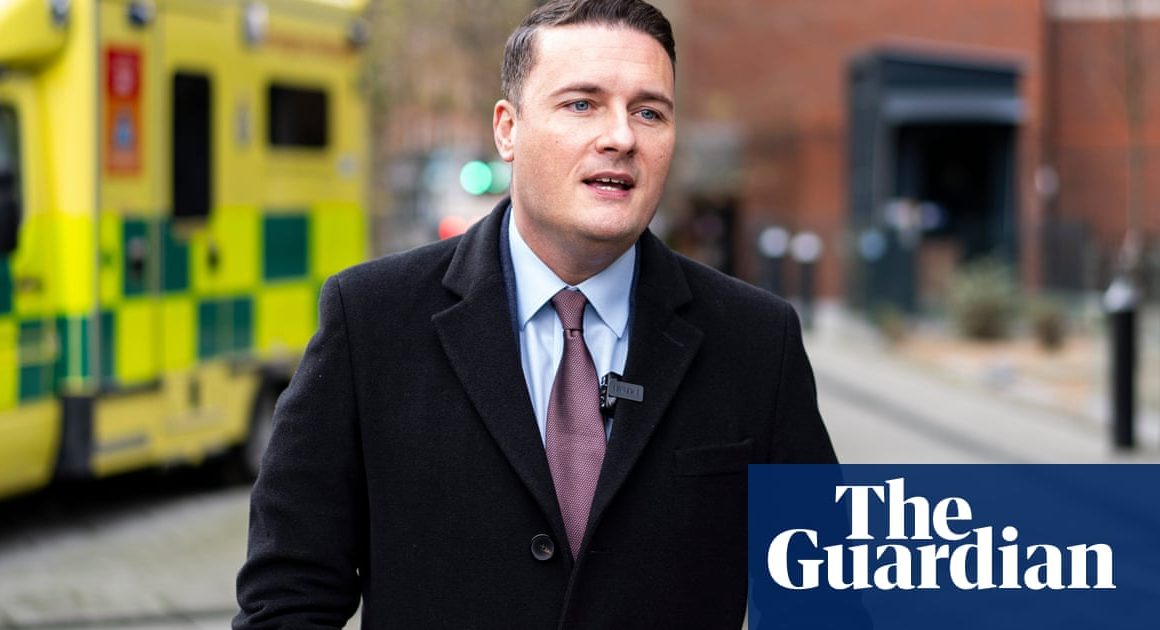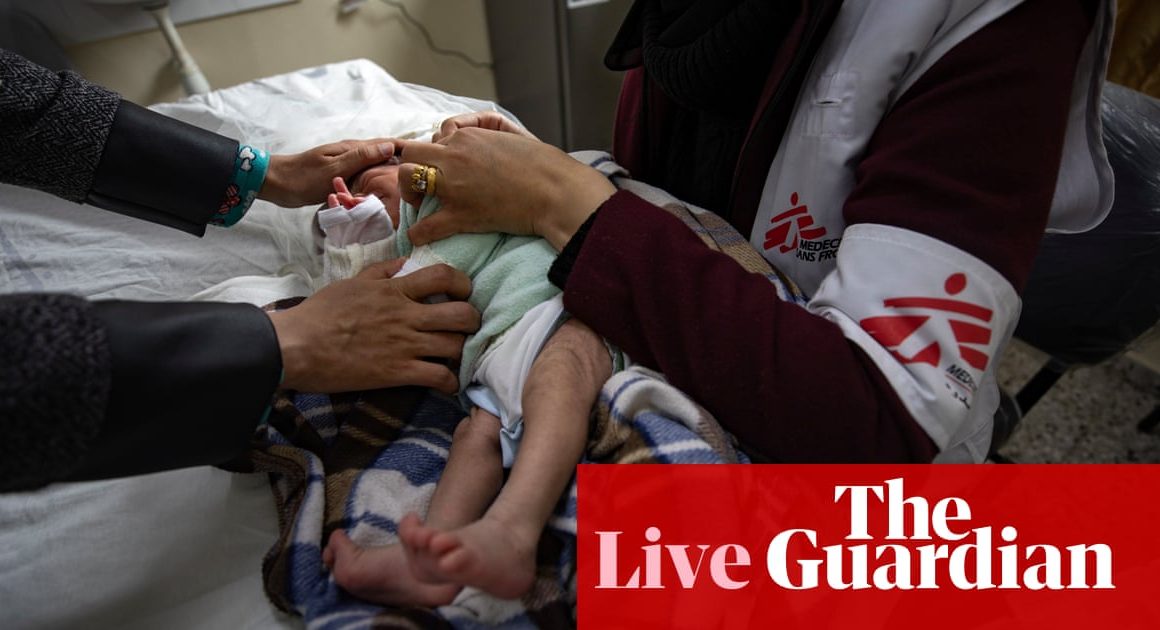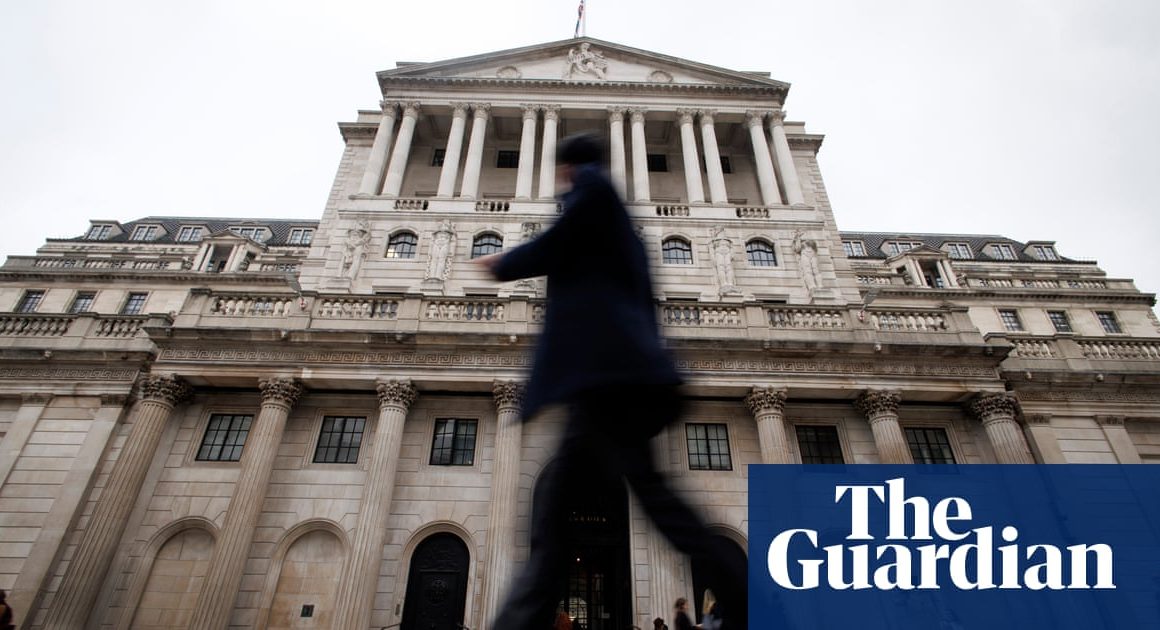This time, the doors of the Syrian state broadcaster were held open for Mohammed Abu al-Zaid.
The rebel commander strode into the building, camo-clad and with a pistol on his hip, and greeted the channel’s staff. The warm welcome was a far cry from his entrance on Sunday morning, when he stormed the building and announced live on air that Bashar al-Assad’s regime had officially fallen.
“I hadn’t planned it; I decided in the moments before that I would do it,” Zaid, a commander of the Southern Operations Room, said on Monday, sitting in the anchor seat of the state broadcaster’s studio.
Behind him was the three-starred flag of the Syrian opposition, which he had put in place of the old Assad government flag.
He recounted the tale to his uncle, Abu Bilal, a rebel fighter who had returned to Damascus from the northern front just a few hours before.
“You know, we didn’t have that much time to watch the news, we’ve been a bit busy,” Bilal said as he watched a video of his nephew announcing the fall of the 54-year long Assad regime on his phone.
Bilal was one of thousands of fighters and displaced people who returned to Damascus and its countryside on Monday, having finished fighting on the frontlines against the Syrian army in Homs, central Syria, two days earlier.
For years, the nearly 4.5 million people – many of them displaced – living in northwest Syria had been unable to see their family in government-held territory.
Fighters came half a dozen at a time, loaded in the back of lorries. The fighters’ journey south were accompanied by cars racing alongside them, honking and waving the Syrian revolutionary flag.
When Bilal, along with Zaid’s brother and a host of other relatives, returned home in east Ghouta in the Damascus countryside, half of the city was waiting for them. Men in military fatigues embraced and openly wept, one dropping his rifle on the ground as he cried. Bilal’s sister threw yellow flower petals over the returning men.
“I haven’t seen him for eight years, nor my brother for four. This is a happy day,” Zaid said over the chorus of celebratory gunfire. The last time the two men had seen each other, they were fighting together against government forces in Eastern Ghouta.
Bilal had gone to continue the fight in Douma, in the countryside of Damascus, where he was forced to relocate to Idlib under a deal between the opposition and the Syrian government.
Much had changed since the rebel fighters were separated. Zaid was then 24; now he was almost 38, with four children. Bilal’s hometown lay in ruins, Syrian government airstrikes had left almost all of the homes broken and uninhabitable.
Though fighting in east Ghouta ended in 2018, no reconstruction efforts had been made. Exploded rockets still littered the streets and infrastructure lay unrepaired.
“East Ghouta used to be famous for its trees, you know? Now, it looks like a desert,” Bilal said, while driving through the city with his nephew. He pointed to rubble which used to be a building complex in east Ghouta. “There are still bodies there, we never got to pull them out.”
Bilal recounted the battles he fought to return to his hometown. He was present when the Syrian government used chemical weapons against its own population in Douma in 2013: “We couldn’t keep up with the dead, so many women and children. We weren’t able to even bury them.” He said the sound of helicopters used to terrify him – the sound of its rotor blades inevitably followed by barrel bombs.
Now back home, and with the Assad regime gone, both Bilal and Zaid hoped they would be able to move on with their lives. Bilal had owned a small restaurant before the war, and now had a son studying dentistry at university. Zaid owned land in his hometown of Kanaker, south Syria, which he hoped to return to and work on as a farmer.
“We will turn over our guns once we have a state and a proper army. We want this to be one country,” Bilal said.
In Damascus, the arrival of fighters from the north put the Islamist insurgents of Hayat Tahrir al-Sham (HTS) squarely back in control. HTS fighters set up checkpoints and guarded major public buildings. Led by Abu Mohammed al-Jolani, who promised a transition to a civilian, Islamist government – the force was seen as disciplined by residents.
As HTS fighters spread throughout the capital city, the sound of gunfire which had been constant since Sunday morning began to fade. People who began to fire in the air in the Umayyad Square were now chased down and had their rifles confiscated.
It was unclear how the different rebel groups would react to HTS taking the helm of the revolution, but for now, worries over the future were put aside as families celebrated their reunions with their loved ones – fighters and otherwise.
“Before the crisis, this place was always full – but for so long no one had been here,” said Samira Abdul Rizk, the sister of Bilal who had remained in east Ghouta for almost a decade without seeing her family. On Monday, her house was full once again, her nieces and nephews now all grown up.




